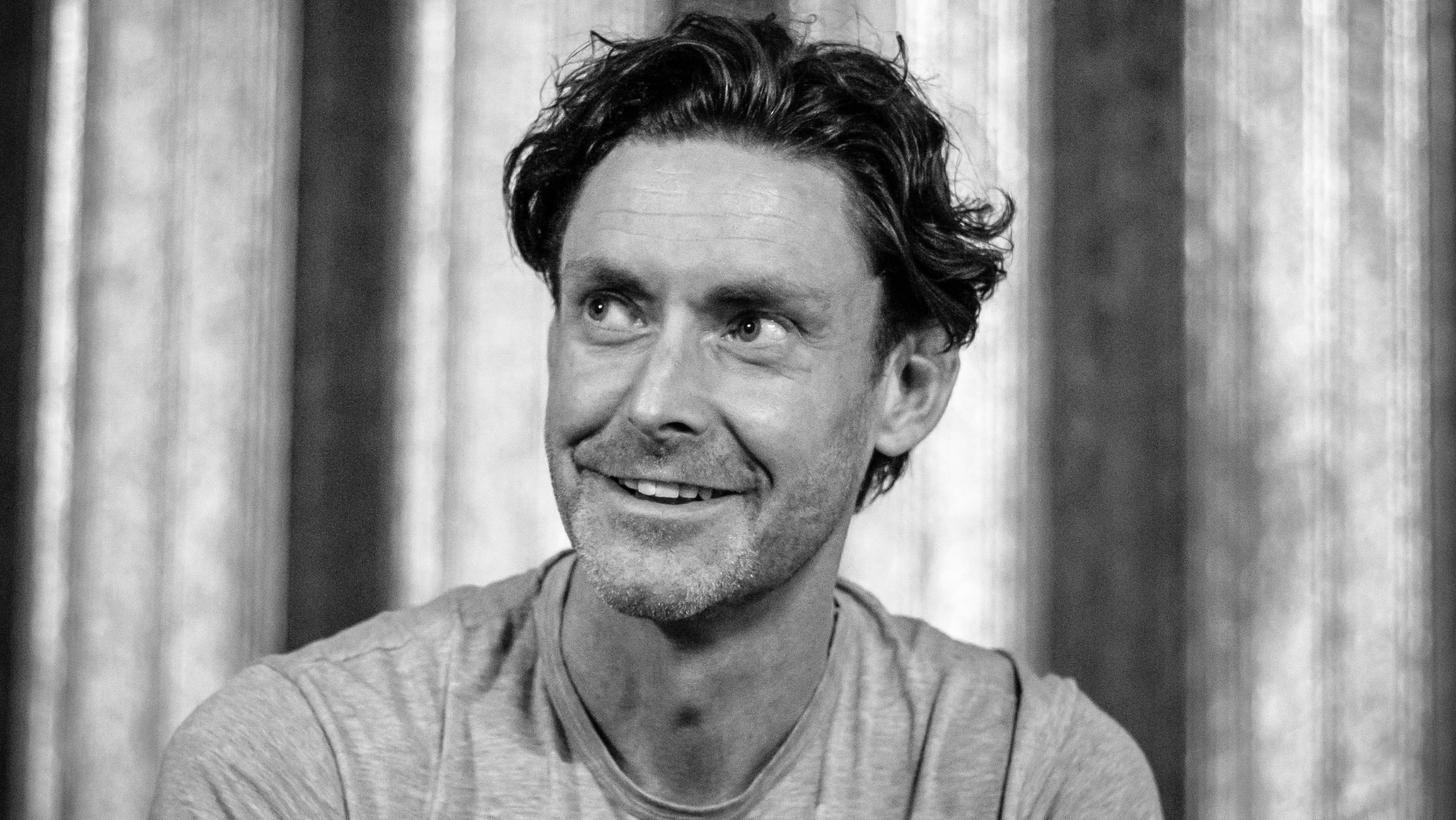
Bossing It: David MacMillan on Why Leadership Is a Team Game

David MacMillan is CEO of leading customer engagement agency Havas CX helia. He was appointed to the role in November 2023, having spent the past decade at the agency in roles including managing director and client services director.
His experience spans agencies including Wunderman, several in-house roles, and a separate three-year spell at Havas CX helia (then known as EHS), where he sat on the Tesco Clubcard steering committee and Tesco Direct task force. He has worked on and run major accounts including O2, Volvo, Diageo, easyJet, Compare the Market, The Royal British Legion, Unilever and Royal Mail.
He is an accredited executive coach, and, away from the office, has mentored at School of Communication Arts and Switchboard, the national LGBTQIA+ support line.
LBB> What was your first experience of leadership?
David> Unlikely as it may seem, it was as a ‘senior patrol leader’ in the Scouts. Night hikes, rock climbing, camping, and blowing up cans of Lynx on the bonfire – all very useful experience.
Joking aside, I’d argue the five core values The Scout Association aims to instil in its members – integrity, respect, care, belief and co-operation – are as useful a guide to leadership as any. Abide by those and you won’t go far wrong.
LBB> How did you figure out what kind of leader you wanted to be – or what kind of leader you didn’t want to be?
David> I didn’t. I’m still working on it, and there’s no weakness in admitting that. I’d be wary of anyone who claims they have it nailed – they shouldn’t. It’s critical to keep learning and evolving, however experienced you might be. Culture doesn’t stand still, and neither should your leadership style.
My own has been shaped by thousands of events and interactions, but the majority of what I know I’ve learnt by making mistakes, or by copying other brilliant leaders I’ve worked with. Actually, I’ve probably learnt more, in terms of what not to do, from a few terrible ones. It’s all valuable experience. Keep your eyes, ears, and mind open at all times.
What I have always known is I didn’t want to be an ‘alpha male’ type. We’ve got enough of those already.
LBB> What experience or moment gave you your biggest lesson in leadership?
David> In 2017, I was named managing director of Havas CX helia’s Cirencester office. While I’d already been in the business for four years, this was a large, successful, established agency with 50 years’ heritage behind it. And now I was leading it. No pressure!
It was my first what I’d deem major leadership role – certainly, the first time I’d led an entire agency – and I realised it’s lonely at the top. At least it is if you let it be. I learnt quite quickly there is no way to achieve things alone. It taught me the importance of surrounding yourself with a trusted, highly effective team who have your, and each other’s, backs.
Ultimately, it taught me that leadership is a team game. I’ve since come to understand the single most important thing I can do as a leader is to support those around me to reach their potential, with balance and enjoyment.
That role, which I held for seven years before being promoted to CEO, also cemented my belief that agencies don’t need to be in London to be brilliant. The talent was always there; Cirencester simply lacked the confidence, and the ability to sell, that London agencies had. In time, it would come to punch well above its geographical weight, bloodying the noses of some of London’s finest in the process.
Ironically, I was living in London – thus becoming one of very few leaders to commute from the capital to the Cotswolds. I never did like doing things by the book.
LBB> Did you know you always wanted to take on a leadership role? If so how did you work towards it and if not, when did you start realising that you had it in you?
David> I’m not sure I ever had a conscious thought about it. I certainly didn’t set out with the sole ambition of becoming a CEO. But if you’re good at what you do, you tend to get promoted and find yourself in these positions. What I have always had is a perspective on how to make things better, a passion to transform whichever situation I was in, and an unwillingness to settle for ‘good enough’. I certainly had a view on how to lead and support people, and a sense of what it takes to carry people with you on a journey.
I believe that, in some way, shape or form, everyone’s a leader. That doesn’t necessarily mean everyone wants, would be comfortable in, or have the skillset for a formal leadership role.
I’ve seen people who were great at their jobs forced into ill-suited management positions because that was the only development path available to them. This approach doesn’t work for employees, and it doesn’t work for businesses. Speak to people. Find out what they want, and how they want to grow. And think outside the box when it comes to career journeys.
LBB> When it comes to 'leadership' as a skill, how much do you think is a natural part of personality, how much can be taught and learned?
David> Some people are clearly natural leaders and communicators, with innate abilities in key areas – but like most skills, I believe it can be learnt and improved upon throughout your life. Crucially, ‘leadership’ is not one-size-fits-all – there are many different types of leader, and what’s important is finding, and leaning into, your own authentic style. Being an extrovert isn’t the same as being a good leader, and vice versa. You don’t have to be the loudest person in the room.
It is true that a high degree of emotional intelligence and the ability to listen deeply are very powerful traits in leadership. It also requires a degree of fearlessness and self-belief, and the ability to make (tough) decisions. You’ll also have to get comfortable with being unpopular from time to time. That’s not for everyone.
LBB> What are the aspects of leadership that you find most personally challenging? And how do you work through them?
David> The tough decisions that affect people’s lives are always going to be hard, particularly when you run a small business as you know your people and their personal circumstances intricately. While there will always be tough decisions – that’s business, and if you’re not willing to make them, leadership isn’t for you – it’s important to remember these are people’s lives and livelihoods, not just numbers on a spreadsheet.
I also have little time for politics and game-playing, so tend to gravitate toward direct, no-nonsense leaders that choose openness and will address difficult situations head on. Again, it’s all about the team you build around you. Get that right and you’ve got an invaluable (and mutual) support network.
LBB> Have you ever felt like you've failed whilst in charge? How did you address the issue and what did you learn from it?
David> Like almost every leader in the country, I was faced with no choice but to let a number of people go during the pandemic. It was devastating, and certainly, at the time, felt like failure.
The best I could offer our people was complete transparency and over-communication. I initiated a weekly all-staff meeting which gave people license to ask me anything, anonymously if they preferred. I’d answer these questions ‘live’ – I didn’t have sight of what was coming – and answered every one, even if there wasn’t a huge amount I could say. It was terrifying, but it earned me a huge amount of support at a time I really needed it – with ‘the best you could do in the circumstances’ being a common refrain.
This ethos is something I’ve been careful to preserve. Be prepared to stand up and allow people to ask you whatever is on their mind. Give them a forum in which to do so. A culture in which people are able to ask the CEO anything is, from experience, incredibly rare, but it plays brilliantly. It helps keep politics in check, and earns you a huge amount of trust. And once your people realise you’re not hiding anything, many of the questions fall away.
LBB> In terms of leadership and openness, what’s your approach there? Do you think it’s important to be transparent as possible in the service of being authentic? Or is there a value in being careful and considered?
David> These aren’t opposite ends of the spectrum, and it’s not a trade-off.
Transparency, and treating your people as adults, is critical – and it’s particularly important during challenging times, which every leader will experience. It’s not about authenticity, per se – more if you fail to show your people the respect and trust they deserve, don’t expect it back. Those things are fundamental, but earned. Without them, you’re finished.
There is also value in being careful and considered in your decision-making and how you treat people. Over the years, I’ve had to learn to slow things down, to ‘sleep on it’, and to consider things properly. Be decisive, but also try and be right more often than you’re not.
LBB> As you developed your leadership skills did you have a mentor, if so who were/are they and what have you learned? And on the flip side, do you mentor any aspiring leaders and how do you approach that relationship?
David> I’m lucky enough – and have made a conscious effort – to remain in touch with a number of amazing and talented people I’ve worked with over the years, who I see regularly and from whom I’m always learning. While I don’t have one mentor, I do have an army of trusted, wise friends, whose counsel and experience I regularly tap into. I hope I, too, play that role for others. It’s important to be generous with your time and experience.
I was also fortunate enough to have a brilliant executive coach, who’s helped me evolve quite considerably over the past few years. They’ve enabled me to bring my best self to work, but it’s a work in progress – and if anyone tells you otherwise, I’d take it with a pinch of salt.
LBB> In continually changing market circumstances, how do you cope with the responsibility of leading a team through difficult waters?
David> Perspective and fun. Let’s be honest, the past few years have seen the world in a perpetual state of crisis, and it’s impacted anyone running a business. I won’t pretend it hasn’t been tough. This, again, underlines the importance of surrounding yourself with a great team. We succeed together, we fail together, we cope together, we try to maintain a healthy perspective, and have fun while doing it. Fun is an underappreciated factor in leadership. If you’re not enjoying yourself, question why not. And make a change.
LBB> As a leader, what are some of the ways in which you’ve prioritised diversity and inclusion within your workforce?
David> You have to acknowledge a problem in order to solve it, and I’ll concede this is a challenging area for us – not least as we have a large business in the less than diverse Cotswolds.
I’m proud that our management team is dominated by strong and deeply impressive women. We are working to improve our balance of people from different socio-economic and ethnic backgrounds through a number of initiatives, which will, if they are to succeed, require a longer-term approach and commitment; I don’t want anything we do to be short-term or tokenistic.
We’re actively making our workplaces more welcoming for the LGBTQIA+, disabled and neurodiverse communities.
We’re lucky enough to have four very active, executive-sponsored Employee Resource Groups [ERGs], Havas embRace (ethnicity), Havas Pride (sexuality), Havas Adapt (disability) and Women of Havas (self-explanatory), which are crucial in helping us flag issues and opportunities and to set the agenda. We’re trying lots of things. Some will work, and we’ll continue to invest in them. Some won’t, and we’ll try something else. We’ll keep trying. There’s much more we want to do.
Ultimately, the buck stops with me. We won’t succeed if I simply leave it to our DE&I and talent teams – although their energy and expertise is critical and much valued – so I’ll continue proactively engage with, champion and invest in our efforts. I do care about this stuff, and not just because I ‘have’ to. I’m fortunate to be in a position of some influence, and I am determined to leave this industry a more tolerant, representative place than I found it.
LBB> How important is your company culture to the success of your business? And how have you managed to keep it alive with increases in remote and hybrid working patterns?
David> I cannot overstate this: culture is everything. As a leader, it is my number one priority, because it’s the unspoken thing that connects everyone and makes everything tick.
Fundamentally, it’s about behaviours. Culture is the sum total of the behaviour of management and what goes on when you’re not in the room. While it’s up to leadership to set the agenda and establish the values, you’ll need others to join you for any cultural revolution to truly come to life.
Focus your energy on those ‘early adopters’ who embrace the vision. Get them on board and others – the majority – will follow. That’s cultural transformation. Some won’t buy into it, and leave. That’s fine. Influencing a culture isn’t easy, but it is easier than running around trying to do everything yourself.
Culture, once established, is culture – whether that’s in the office, remote, or hybrid. The fact we’re committed to the latter influences our culture – it doesn’t undermine it.















